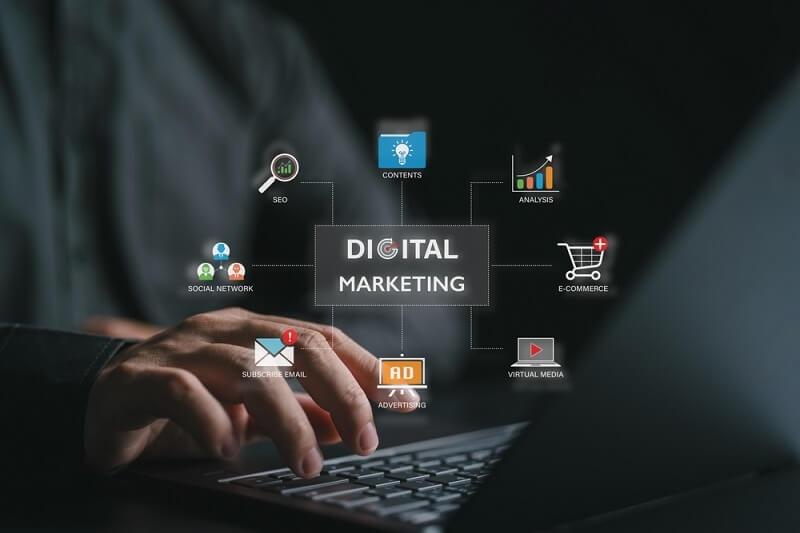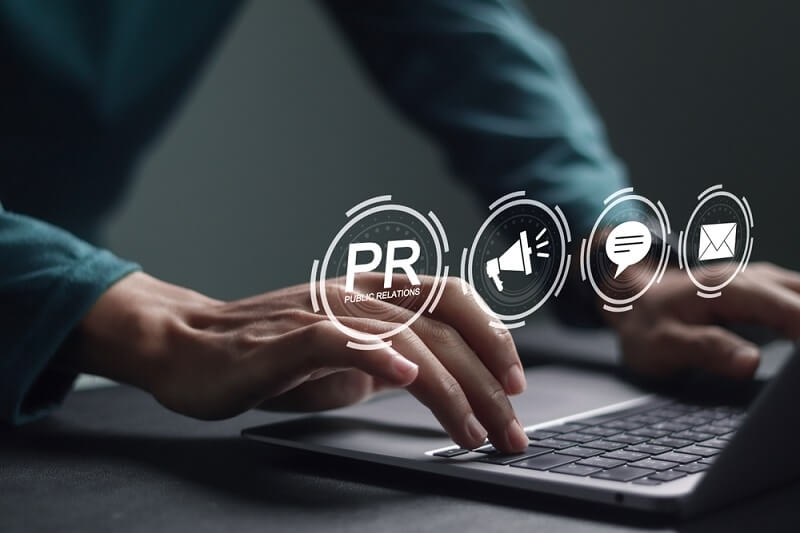
Here’s the truth: pulling off a great event isn’t just about the stage, the décor, or even the speaker lineup. If people don’t know it’s happening — or worse, if they don’t care — it doesn’t matter how stunning the venue looks. And that’s where digital marketing comes in. In today’s world, your ability to craft a thoughtful digital marketing strategy for events can literally make or break the turnout.
But let’s be honest. The idea of building “strategy” can feel overwhelming. Where do you even start? Is it all about social media posts? Do you need ads? Influencers? A hashtag? The good news is you don’t have to guess. With some structure, a little creativity, and a focus on people (not just numbers), you can build something that actually works.
Let’s walk through it, step by step.
Before you jump into TikTok trends or draft Facebook ads, stop and ask: why are you hosting this event? Sounds obvious, but most teams skip this part.
Is it to build brand awareness?
Generate leads?
Strengthen relationships with current clients?
Raise money for a cause?
Your marketing needs to mirror your goals. A charity gala campaign will look very different from a tech conference campaign. So nail the purpose first — everything else flows from there.
Here’s the thing: saying your event is “for professionals” is way too broad. Who are these professionals? Are they mid-level managers looking to network? Students eager to learn? Creatives looking for inspiration?
Create audience profiles (marketers love calling them “personas”). Give them names, challenges, and motivations. When you know your crowd deeply, the copy writes itself. The platforms to focus on become obvious. And you stop wasting time shouting into the void.
Now that you know your “why” and your “who,” it’s time for the “what.” What are you saying to them?
This isn’t about throwing a list of speakers or bullet points. It’s about story. What problem does your event solve? What transformation does it promise?
Instead of “Join us for a leadership conference,” try: “You’ll walk away with actionable strategies to lead your team with confidence — and a network of peers who’ve got your back.”
That’s messaging that makes someone stop scrolling.
The digital landscape is huge. And yes, you could technically try to be everywhere. But that’s a recipe for burnout. The smarter approach? Show up where your audience already is.
LinkedIn: Perfect for professional networking events, conferences, B2B meetups.
Instagram/TikTok: Visual, hype-driven platforms — great for festivals, creative summits, or fashion events.
Facebook: Still solid for local community gatherings, workshops, fundraisers.
Email marketing: Underrated, but still one of the most effective tools for keeping registrants engaged pre-event.
Remember, it’s not about covering every channel. It’s about showing up consistently where it matters most.

Here’s the big debate: should you throw money at ads or keep it all organic? The honest answer: both.
Organic content builds community, trust, and buzz over time.
Paid ads help you reach new audiences quickly, especially when registrations are lagging.
The trick is to use them together. Post value-driven content regularly, then put ad spend behind the best-performing posts. That way, you’re amplifying what already works, not gambling on random creatives.
Events are naturally social. People love to share where they’re going and who they’re seeing. Your job is to make it easy (and fun) for them.
Create a hashtag (short, catchy, easy to remember).
Share behind-the-scenes videos as you prep.
Spotlight speakers or performers with bite-sized clips.
Use countdown posts to build urgency.
And don’t forget — social media isn’t just broadcasting. It’s conversation. Reply to comments. Repost attendee stories. Celebrate your community as much as you promote yourself.
One of the best-kept secrets in digital marketing for events? You don’t have to do it alone.
Speakers, sponsors, vendors — all of them have audiences too. Give them toolkits with ready-to-share posts, graphics, and suggested captions. Make it effortless for them to spread the word.
When everyone promotes together, your reach multiplies without multiplying your budget.
Do Check Out: 2025 Healthcare Branding: Maximize ROI & Patient Loyalty
Here’s a painful truth: you can run the best campaign in the world, but if your landing page is clunky, you’ll lose sign-ups.
Your event site should answer three things instantly:
What’s this event about?
Why should I care?
How do I register?
Keep it clean, mobile-friendly, and fast. Bonus points for integrating testimonials, speaker highlights, or a short video.
And please — test your registration flow. Nothing kills excitement faster than broken links or confusing forms.
Social platforms change their algorithms every other week. Email? That’s your list, your people. And it’s gold.
Here’s how to use it:
Pre-event drip campaigns: Build anticipation with sneak peeks and speaker intros.
Reminder emails: As the date gets closer, increase frequency (without spamming).
Post-event follow-ups: Thank attendees, share highlights, and nudge them toward future events.
It’s not glamorous, but email remains one of the most effective ways to drive registrations and engagement.
You can’t just “set it and forget it.” That’s not digital marketing for event planners. Monitor your campaigns. What’s working? What’s flopping?
Which channels bring in the most sign-ups?
What type of content gets the most shares?
Are people dropping off at a specific point in registration?
The answers aren’t just numbers. They’re roadmaps to tweak your strategy in real time.
If you’re a larger team, a digital marketing for event management company looks different than a solo planner. You’re juggling multiple events, often with very different audiences.
In this case, templates and systems are your best friend. Create standardized workflows — checklists for campaigns, design templates for posts, email sequences ready to customize. Then, layer creativity on top for each specific event.
That way, you’re not reinventing the wheel every time. You’re just decorating it differently.
Too many organizers pack up shop as soon as the last guest leaves. Big mistake. Events are goldmines for ongoing engagement.
Share photo albums and highlight reels.
Post key takeaways or soundbites from speakers.
Encourage attendees to keep networking in a LinkedIn group or Slack channel.
This is what true digital event marketing and management looks like: extending the lifecycle of your event long after the lights go down.
Finally, let’s address the elephant in the room: it’s a lot. Crafting posts, running ads, tracking analytics — it can feel like a full-time job. And in many cases, it is.
So, how to do digital marketing for an event without losing your mind? Plan early. Batch content. Use scheduling tools. And, if the budget allows, delegate — hire freelancers or agencies who specialize in events.
You don’t need to be everywhere, every second. You just need to show up where it matters, consistently and with clarity.
Read More: Fastest Growing AI Jobs in 2025 You Should Know About
In 2025, your marketing strategy is as important as your stage design. You can book the most inspiring keynote speaker, but if no one shows up, it doesn’t matter. The digital world is the venue before the venue.
The secret isn’t in chasing every trend. It’s in knowing your goals, knowing your audience, and crafting a message that connects. Do that, and you’ll build a digital marketing strategy for events that doesn’t just sell tickets — it creates experiences people remember.
Because at the end of the day, events are about connection. And digital marketing? It’s just the bridge that gets people there.
This content was created by AI